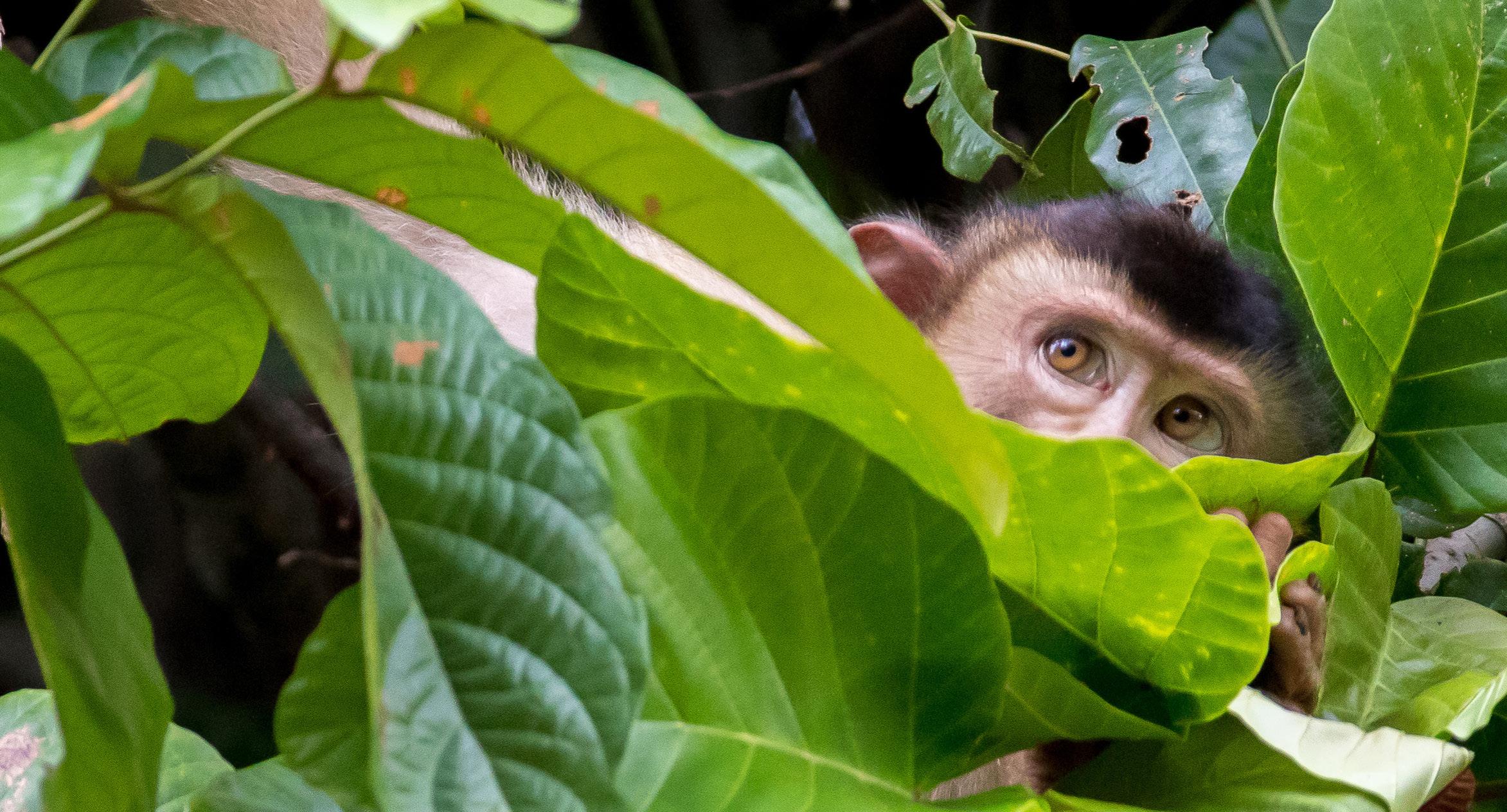
7 minute read
Signs of Wildlife and Hope
from MyZoo Fall 2020
The boat driver cuts the engine. We slowly bob and drift along the river toward the direction of what has caught the observation team’s eyes—a sight found nowhere else in the world: the improbably proportioned proboscis monkey.
Researchers with HUTAN’s primate observation unit have spotted a small family group. With the aid of binoculars and a Woodland Park Zoo is a clipboard, they take note of member of the Roundtable juveniles playing, female adults nearby at rest. A dominant on Sustainable Palm Oil and male on a branch all his own advocates for consumers watches over us, potbelly flopped over almost as to shop with companies characteristically as his nose. committed to certified, That signature nose is meant sustainable palm oil. to signal his attractiveness, and possibly act as a sound enhancer for better group management. It also has given the proboscis monkey its name and its prominence in the eco-story of Borneo. Here, charismatic endangered species found nowhere else in the world make a compelling case for urgent conservation of the island’s rain forests.
Perhaps no face is better associated with that cause than the orangutan. Our red-haired, great ape relatives are threatened with extinction in Borneo’s dwindling forests. Their plight is what inspired a team of conservationists to form the HUTANKinabatangan Orangutan Conservation Programme, a long-time Woodland Park Zoo partner.
In pre-COVID days, I visited HUTAN staff and their community partners in the Sukau village of Borneo’s Kinabatangan region. I was there to scout for wildlife and stories of hope for their survival. Throughout our journeys along the Kinabatangan River, the program’s co-founder and scientific director, Dr. Marc Ancrenaz, and the HUTAN team gave me helpful spotting tips: scan an area and look for a sign of something out of the ordinary—a shift, a contrast, a movement.
That’s how I learned that before you see an orangutan, you'll more likely spot its nest, a cradle of broken branches and tufts of leaves. Orangutans occasionally dot the riverfront canopy, making their way through ripe, fruiting trees to nest in the treetops. More plentiful are the macaques, the long tailed and pig-tailed monkeys whose swimming skills make it possible to spot them low along the waterfront. The rarer silvery langurs require eagle eyes to find in the canopy, given away by the gray tips of hair that stand in contrast to green leaves.
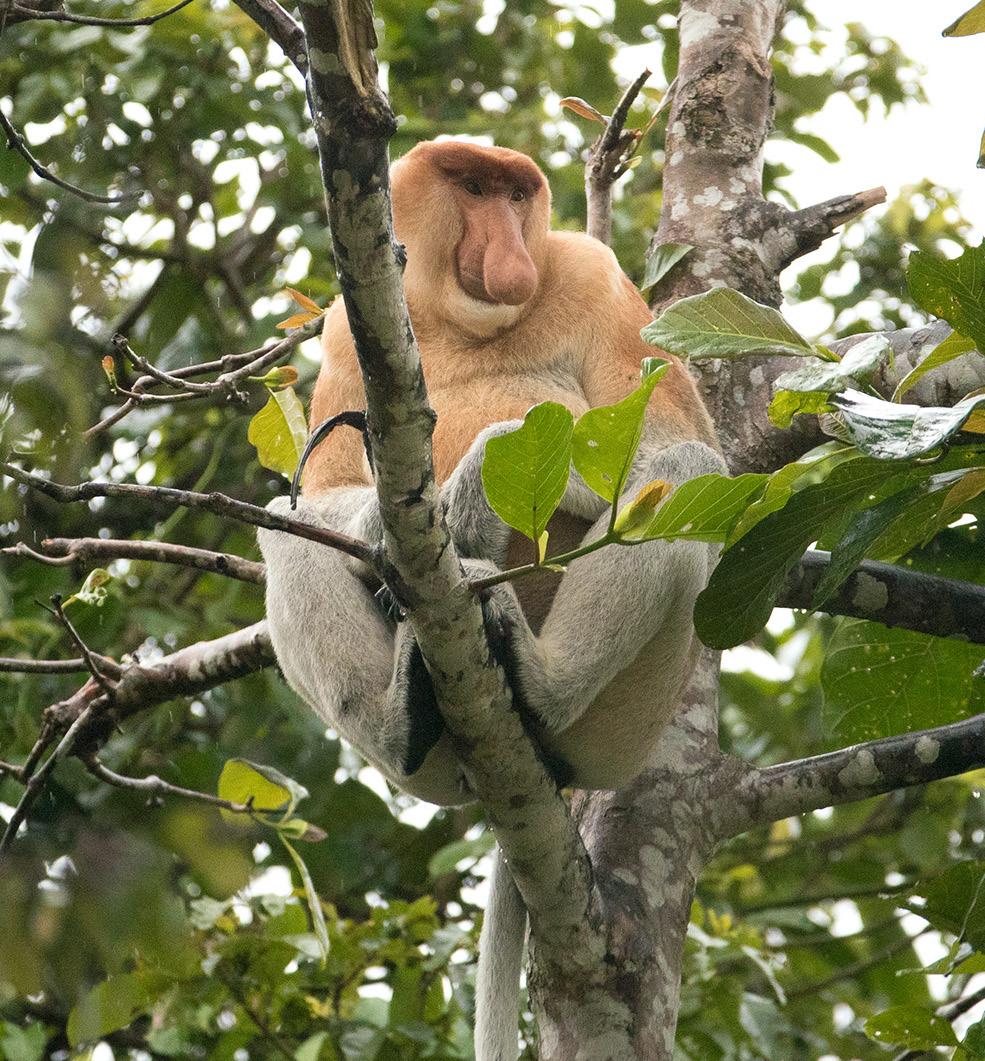
“Kinabatangan is really rich with an amazing number of species. It’s a biodiversity hotspot,” Dr. Ancrenaz shares. In the course of my time there, I’ll apply my spotting skills to find primates, elephants, hornbills, crocodiles, eagles, civets, and other extraordinary wildlife—and at the same time, begin to see a wider view of what’s happening in the Kinabatangan.
In the distance from the river’s shores, the staggering array of dipterocarp diversity gives way to uniformity— seemingly endless rows of neatly planted oil palm trees. “Development is happening fast in Southeast Asia, and of course it’s also happening in Borneo. The forest habitat is being converted to other types of land uses,” explains Dr. Ancrenaz. “The size of the forest is reducing, but also the shape of the forest is changing.”
Only 250,000 acres of primate forest remain in the Kinabatangan floodplains, fragmented across more than a million acres of human-made landscapes and palm oil plantations. Palm oil is likely in your home right now, a little known but ubiquitous ingredient in everything from sweets and treats to dog food and detergent. Woodland Park Zoo is a member of the Roundtable on Sustainable Palm Oil and advocates for consumers to shop with companies committed to certified, sustainable palm oil. The Roundtable’s certification program seeks to improve the palm oil industry’s environmental and humanitarian impact as global demand for the vegetable oil continues to rise.
Sustainable agriculture is key to Borneo’s future. Yet with so much forest lost and degraded already, more needs to
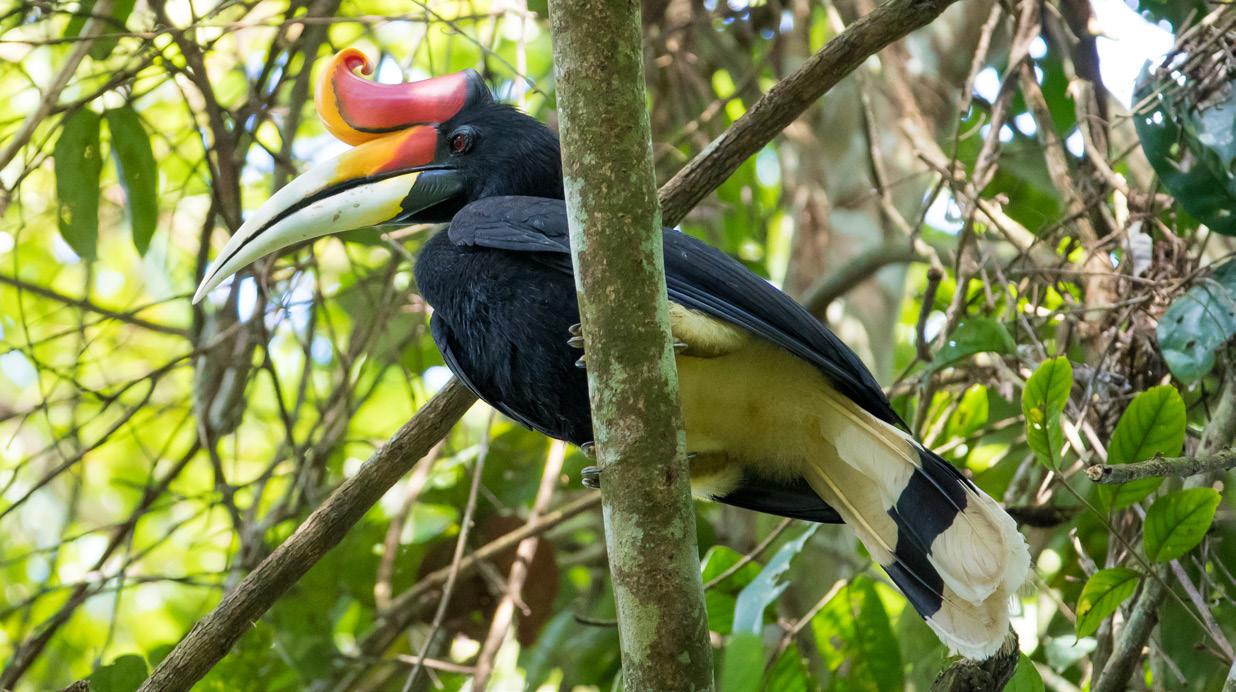
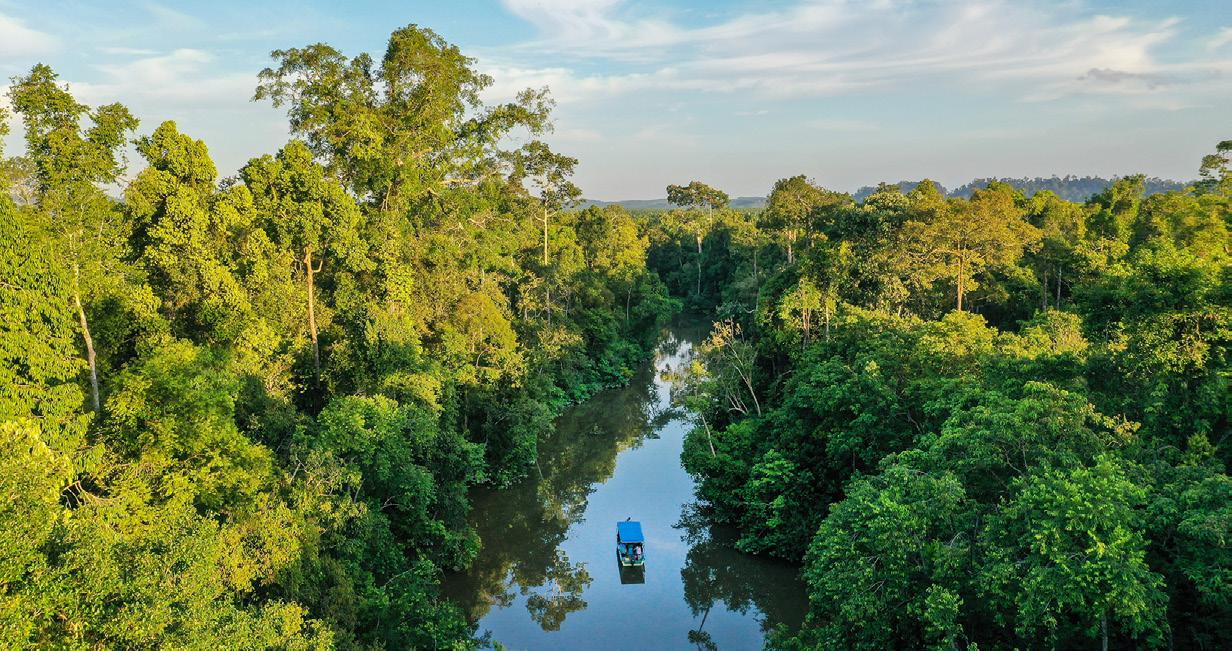
be done now for the wildlife that are displaced and lacking resources.
From the river, with the help of some binoculars and amazing timing, I can spot a beak poking out of a humanmade wooden box attached impossibly high up a tree. It’s a hornbill, an icon of the Kinabatangan that is threatened by the loss of suitable nesting cavities in degraded forests. To help, HUTAN staff builds and installs artificial hornbill nest boxes—a solution that requires agile (and brave!) staff to scale up trees for the equivalent height of about six building stories. I recall the bird feeder in my own urban yard that I sometimes “forget” to
FOREST-FRIENDLY GROCERIES
You can look out for the wildlife of Borneo right from your own home.
More than 7,000 of you have checked out our sustainable palm oil shopping guide since we launched a mobile version last year. Join the movement and make forest-friendly choices part of your next shopping trip.
www.zoo.org/palmoil
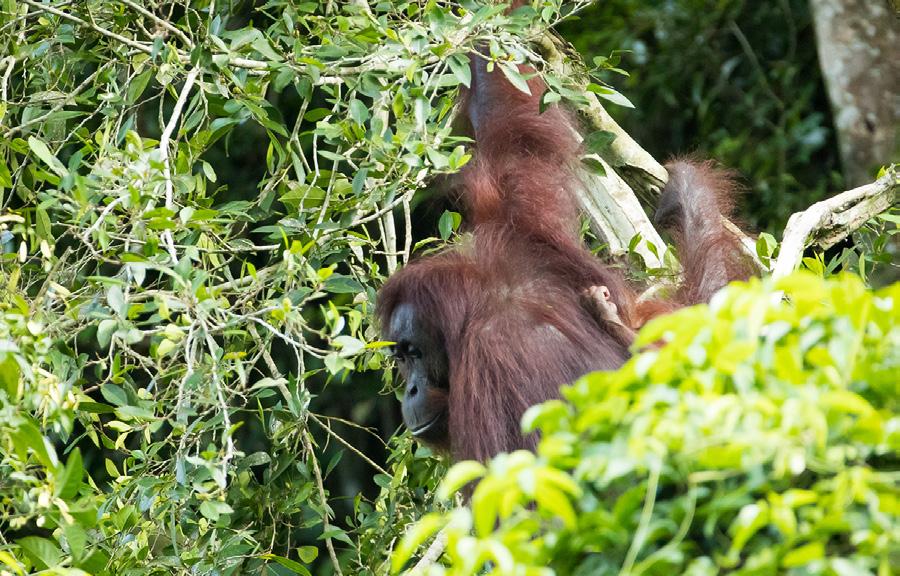
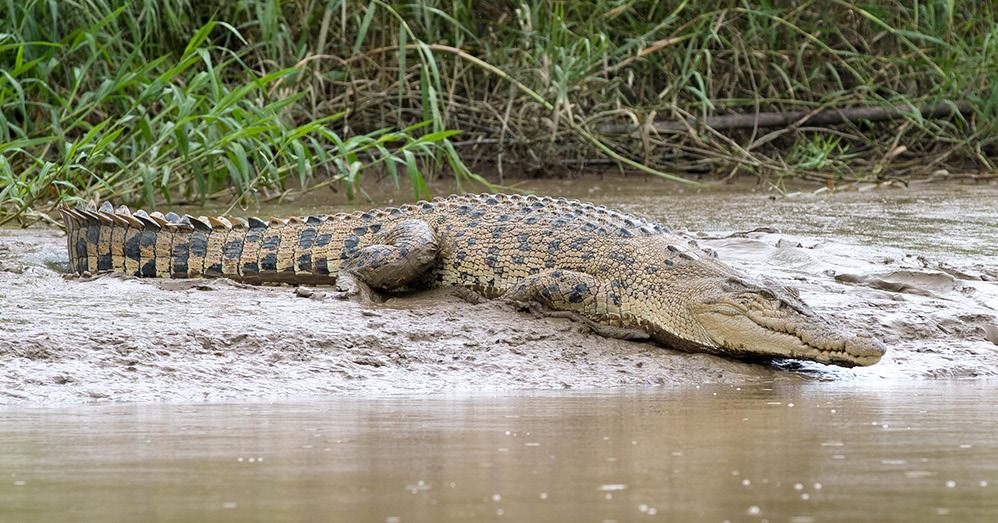
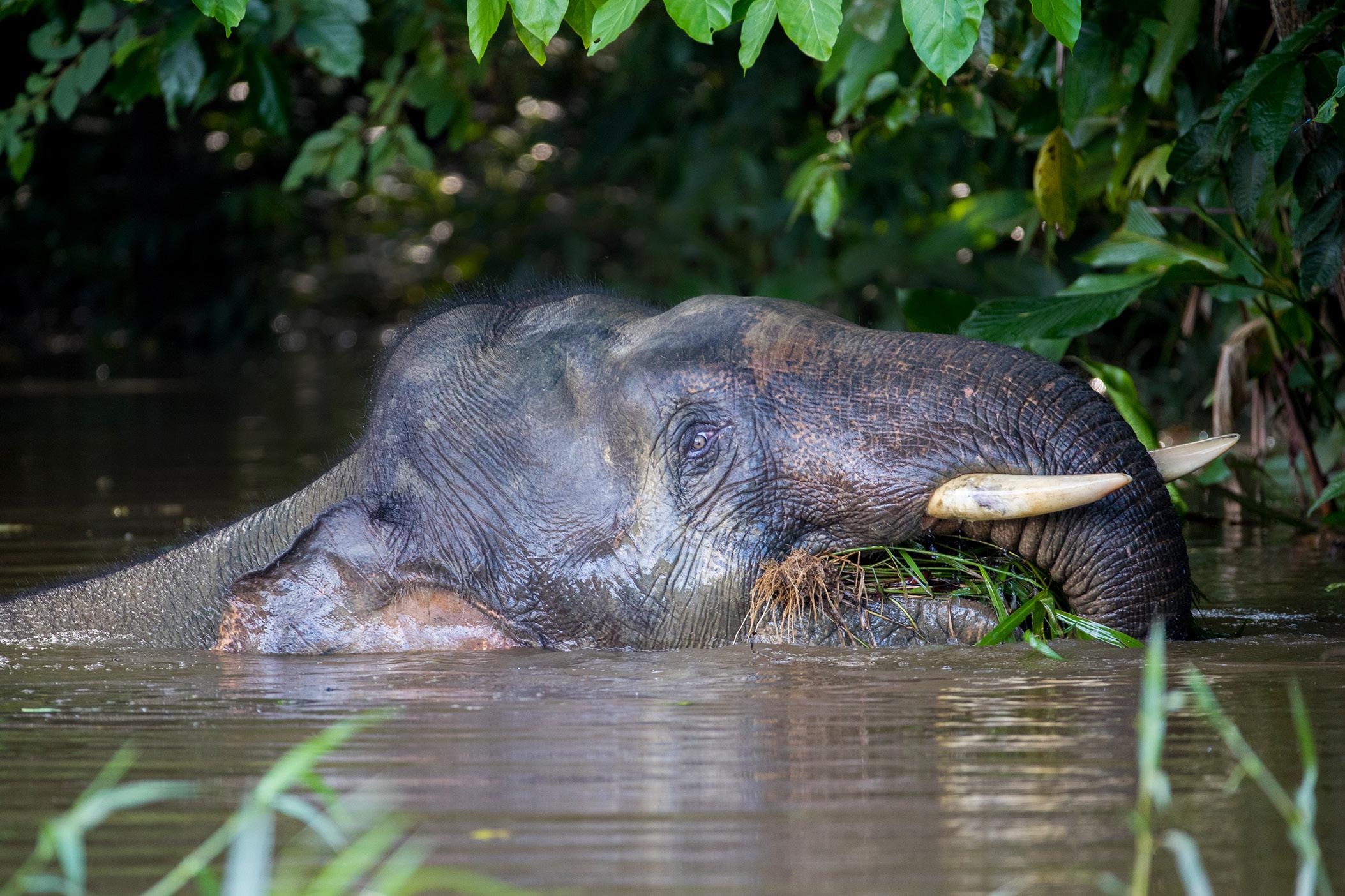
refill because the branch it hangs from is inconveniently tall for “We have these seedlings that are going to outgrow the palms, my 5’3” frame, and I commit myself to do better. and over the years the palms will die and disappear, and then The artificial nests are few and scattered. Easier for my eye to we’ll have a natural forest,” says Dr. Ancrenaz. catch during journeys along the river are plots of forest that look A collaboration like this might have once been impossible, different than the rest. They are slighter, but conservationists are adapting their younger, and another sign of HUTAN’s work. It’s not enough to solutions to a changing world. It’s not Here, reforesters have hand planted native trees in once-logged lands. designate protected enough to designate protected lands. We need to have a hand in reshaping policies, “One of our projects is to create corridors lands. We need to have rebuilding corridors, restoring hope. for wildlife, meaning we want to reconnect a hand in reshaping For Dr. Ancrenaz, “To study what is fragments of isolated forest to one another in order for wildlife to keep on moving and policies, rebuilding happening here in Kinabatangan to me gives me hope because this place shows disperse,” explains Dr. Ancrenaz. corridors, restoring hope. that if things are managed properly, we can A literal sign marks the reforesters’ latest project along the Kinabatangan shores. The Keruak Wildlife have people and their activities as well as wildlife sharing the same environment.” Corridor billboard is crowded with logos of a once unlikely After dozens of boat rides, forest treks, research outings, group of partners: conservation organization HUTAN, the state and community conversations in the Kinabatangan, I see of Sabah, Malaysia, and a commercial palm oil producer. Here signs of hope everywhere. You just need to scan and look for is a plot of land once converted to oil palm plantation where something out of the ordinary— a shift, a contrast, a movement. HUTAN is now working to reforest and restore a corridor for elephants and other Bornean wildlife. Rebecca Whitham, Vice President of Engagement
Photos by Jeremy Dwyer-Lindgren, WPZ

ADOPT AN ORANGUTAN
Become a ZooParent and your orangutan adoption will support the care of Godek, Melati, Heran and Belawan at the zoo, and critically endangered orangutans in Borneo and Sumatra.
www.zoo.org/zooparent
Thank you for your support this year, while we were closed and since we’ve reopened—47% of the donations to our Relief Fund so far have come from members, and we are so grateful!
From your memberships, donations and onsite purchases, YOU help us ensure the highest quality care for all 900 of the zoo’s inhabitants. We couldn’t do it without each and every one of you, thank you again for being a part of the zoo family!
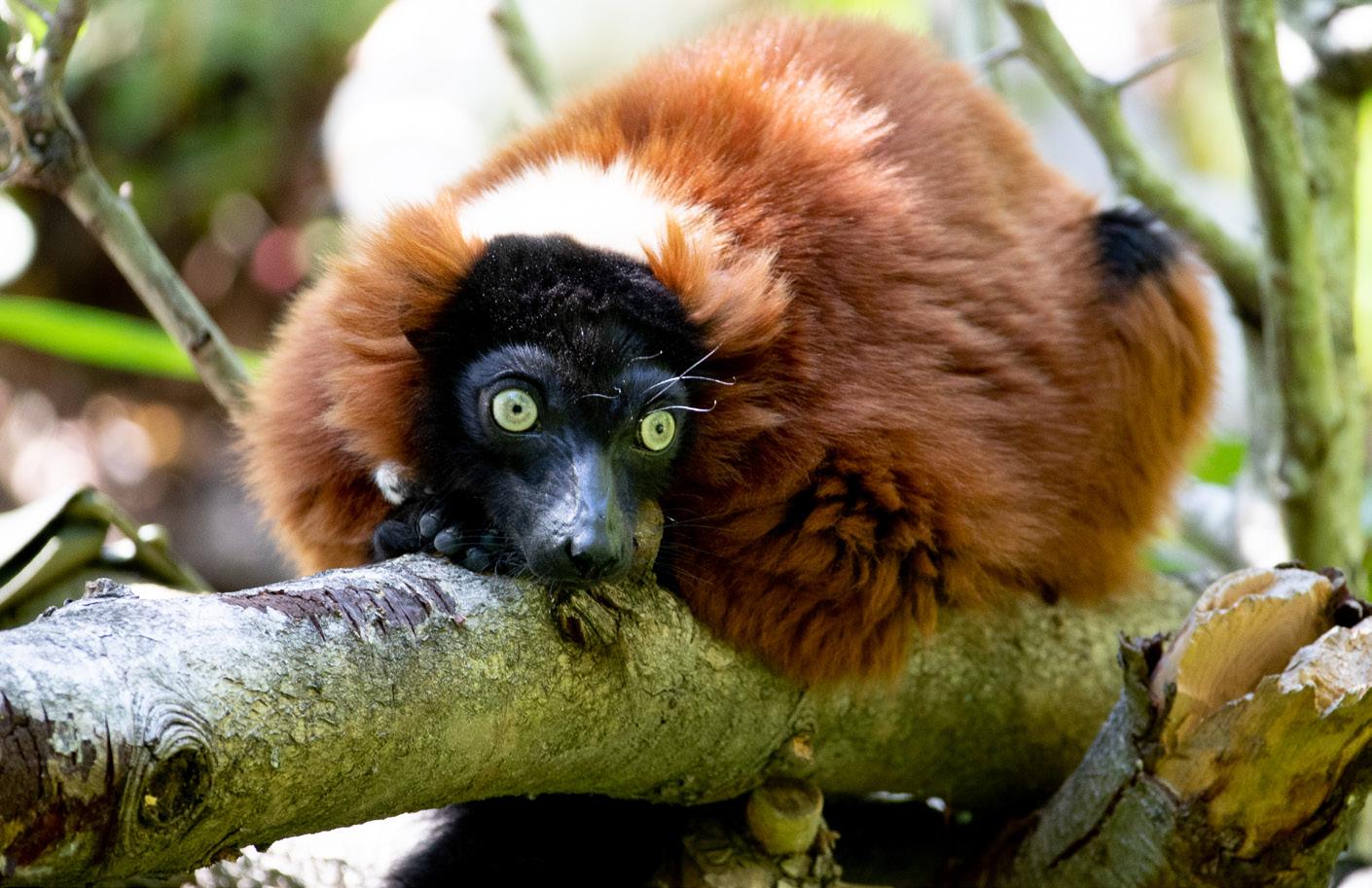
Take Action MEMBER
TIPS FALL 2020
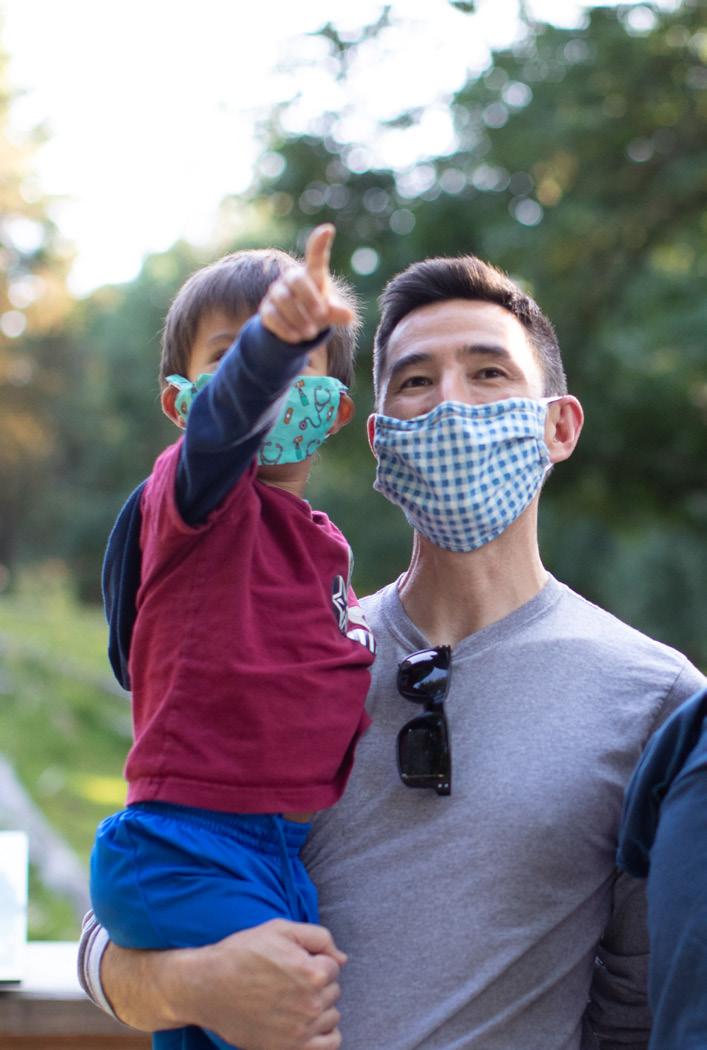
Visit the Zoo
WE'RE BRINGING THE ZOO TO YOU
Need to add some fun to your fall school activities?
Check out our Zoo to You page, updated weekly! It’s full of animalthemed activity sheets, videos, coloring pages, and resources for young families with prompts to keep little ones connected to your favorite zoo friends. Plus, a link to Boeing Future U page, which is full of ecoAction videos, activities and lessons.
MEMBER DISCOUNT ON WILDLANTERNS TICKETS
Don’t forget, members get 20% OFF of WildLanterns tickets!
WildLights is becoming WildLanterns for the 2020 holiday season! Click here for more information on visiting WildLanterns at the zoo.
MAKE YOUR
RESERVATION
Having trouble finding a member reservation? Try planning your visit for the afternoon, which has more availability. You can also reserve your visits up to 30 days in advance, so go ahead: plan your next few visits ahead of time and enjoy the wild adventure every zoo visit brings!



